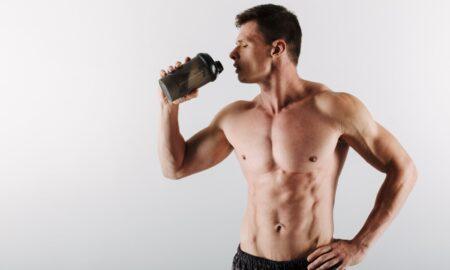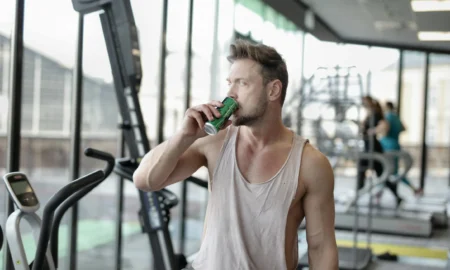Energy drinks are the Rodney Dangerfield of the beverage world. They get no respect. Look at the French. They banned Red Bull until April 1, 2008. They were concerned about its high caffeine content as well as the amino acid taurine. Note to the French: Red Bull had less caffeine than a cup of coffee. And taurine? Please. I find it utterly amazing that anyone could have faith in what those busybodies say is good or bad for us. The science on energy drinks is the polar opposite of what you read in the mainstream press.
One study shows indeed that not only did the subjects’ focused and sustained attention improve significantly, but so did reaction speed in all sorts of tasks. Memory improved too.1 Another investigation looked at the effect of a preexercise energy sport drink on the acute hormonal response to resistance exercise in eight experienced resistance-trained men. The researchers found that an energy beverage drunk 10 minutes before resistance exercise can increase the number of repetitions performed and the total volume of exercise.2
A study from the College of New Jersey, published in the Journal of the International Society of Sports Nutrition, compared Redline to a placebo in 12 trained strength and power athletes. After drinking half a bottle of the energy drink, subjects performed a two-minute quickness and reaction test on the Makoto testing device. Following a 10-minute rest, they repeated the testing sequence, and after a similar rest period did a third and final testing sequence. The Makoto testing device allows subjects to react to both a visual and auditory stimulus by striking one out of 30 potential targets on three towers.
Results: The energy drink improved reaction time as well as subjective feelings of focus and energy in male strength and power athletes.3 Though many of us don’t pay much attention to reaction time, think about it; one of the key elements in optimal performance for most speed sports is reaction time. When that fastball is flying at you at 95 miles per hour, you’d better react quickly. When you’re in the cage getting ready to rumble with a fellow mixed-martial-arts fighter and that superman punch comes flying, you’d better react, and quickly!
Clearly, energy drinks have benefits, including improved mood and performance during fatiguing and cognitively demanding tasks.4 The notion that they’re harmful isn’t supported by any evidence I’ve seen. My advice: If you want to perform better, drink a serving of an energy beverage 15 minutes prior to exercise.
Energy drinks may not get respect from the mainstream media, but then again, the science IQs of mainstream writers are usually between those of a grapefruit and a chimpanzee. IM
Editor’s note: Jose Antonio, Ph.D., is a writer, professor, scientist and avid outrigger paddler. For more information, go to www.JoseAntonioPhd.com.
References
1 Van den Eynde, F., et al. (2008). The effects of energy drinks on cognitive performance. Tijdschr Psychiatr. 50(5):273-281.
2 Hoffman, J.R., et al. (2008). Effect of a pre-exercise energy supplement on the acute hormonal response to resistance exercise. J Strength Cond Res. 22(3):874-882.
3 Hoffman, J.R., Kang, J., et al. (2009). Examination of a pre-exercise, high energy supplement on exercise performance. J Int Soc Sports Nutr. 6:2.
4 Smit, H.J., et al. (2004). Mood and cognitive performance effects of “energy” drink constituents: caffeine, glucose and carbonation. Nutr Neurosci. 7(3):127-139.




















You must be logged in to post a comment Login